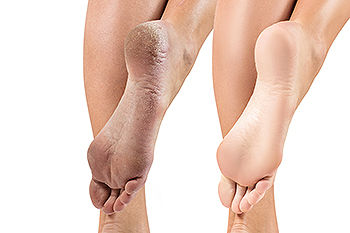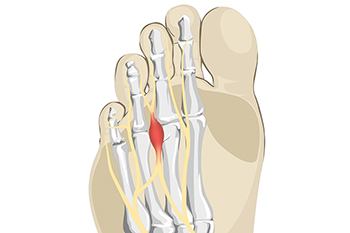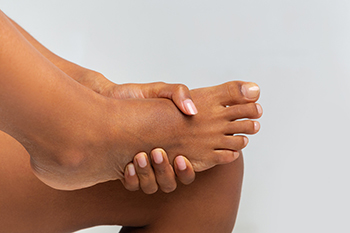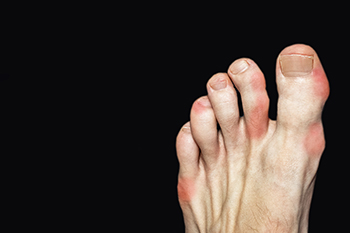
A lack of moisture in the skin of the feet may result in a condition known as cracked heels. It is often preceded by thickened skin on the heels which may become brown or yellow. Severely cracked heels are called fissures and may bleed or become infected. Cracked heels can develop for various reasons like standing on hard surfaces for most of the day and wearing shoes that have an open back. Additionally, there are medical conditions that can cause cracked heels, including dermatitis, psoriasis, and thyroid disorders. Relief may be found when the feet are soaked in warm water, followed by applying a good moisturizer. Some patients find that it may be helpful to use a pumice stone to effectively remove hardened skin. To avoid cracked heels, the best methods to implement consist of wearing closed, supportive shoes, and practicing everyday foot care. If you are afflicted with cracked heels, it is suggested that you consult with a podiatrist to determine the best treatment option for you.
If the skin on your feet starts to crack, you may want to see a podiatrist to find treatment. If you have any concerns, contact one of our podiatrists from Foot & Ankle Centers of Charlotte County . Our doctors can provide the care you need to keep you pain-free and on your feet.
Cracked Heels
It is important to moisturize your cracked heels in order to prevent pain, bleeding, and infection. The reason cracked heels form is because the skin on the foot is too dry to support the immense pressure placed on them. When the foot expands, the dry skin on the foot begins to split.
Ways to Help Heal Them
- Invest in a good foot cream
- Try Using Petroleum Jelly
- Ease up on Soaps
- Drink Plenty of Water
Ways to Prevent Cracked Heels
- Moisturize After Showering
- Skip a Shower
- Keep Shower Water Lukewarm
- Don’t Scrub Your Feet
If you are unsure how to proceed in treating cracked heels, seek guidance from a podiatrist. Your doctor will help you with any questions or information you may need.
If you have any questions, please feel free to contact our offices located in Punta Gorda and Port Charlotte, FL . We offer the newest diagnostic and treatment technologies for all your foot care needs.





